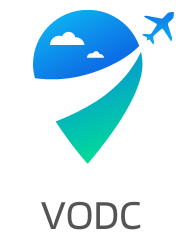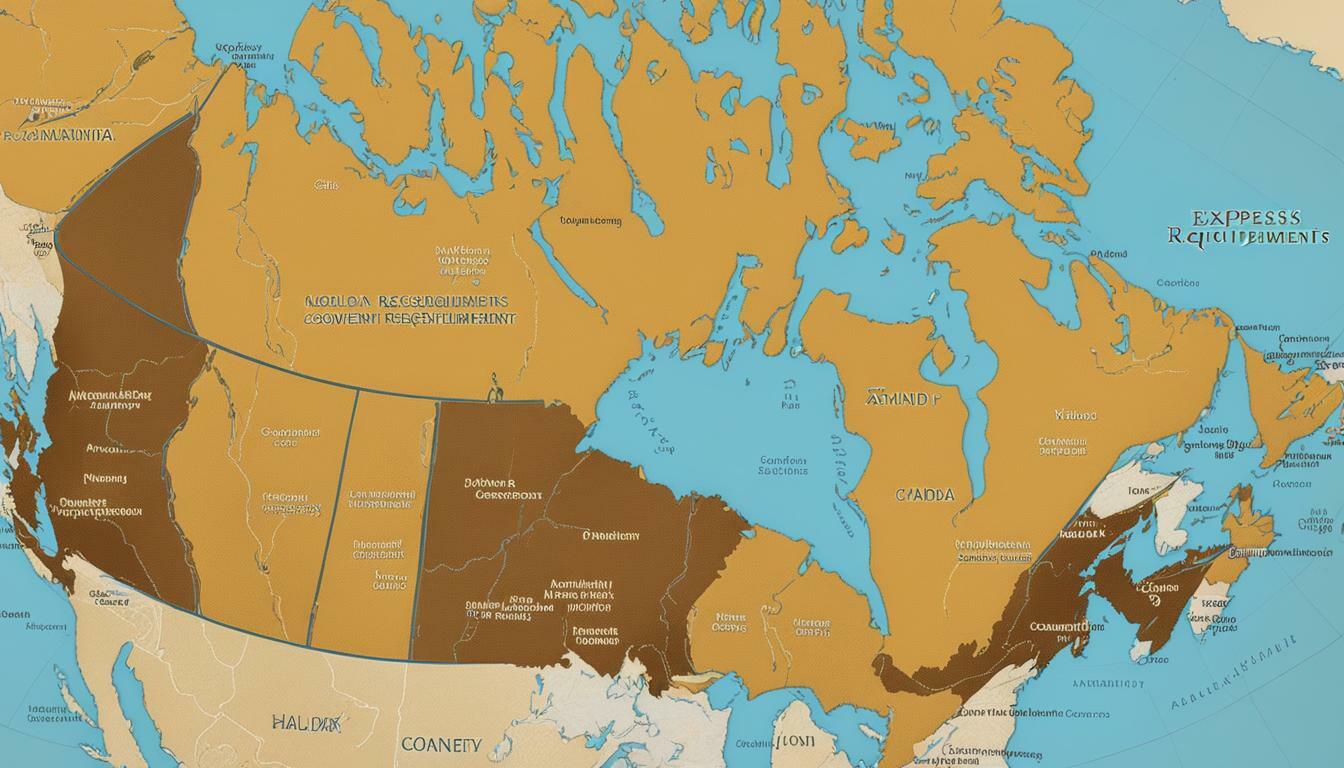Unveiling What are the Current Express Entry Requirements for Canada PR?
If you are considering immigrating to Canada and obtaining permanent residency through the Express Entry program, it is essential to understand the current requirements and eligibility criteria. The Express Entry system is the fastest and most popular pathway to permanent residence in Canada, offering skilled workers the opportunity to live and work in the country.
Key Takeaways:
- The Express Entry system is a streamlined immigration program designed to attract skilled workers to Canada.
- Eligibility for Express Entry is based on factors such as age, education, work experience, and language proficiency.
- Candidates are ranked using the Comprehensive Ranking System (CRS), which assigns points based on various factors.
- Language proficiency in English or French is a crucial requirement for Express Entry, with designated language tests used to assess proficiency levels.
- Work experience in specific occupations and industries can significantly impact a candidate’s CRS score and chances of receiving an Invitation to Apply (ITA) for permanent residence.
Understanding the Express Entry System
The Express Entry system is a points-based immigration system designed to attract skilled workers to Canada and facilitate their pathway to permanent residency. It operates under three main economic immigration programs: the Federal Skilled Worker Program, the Federal Skilled Trades Program, and the Canadian Experience Class.
One of the key benefits of the Express Entry system is its efficiency. Candidates who meet the eligibility requirements are placed in a pool, where they are assigned a Comprehensive Ranking System (CRS) score based on factors such as age, education, work experience, language proficiency, and adaptability. The highest-ranked candidates receive an Invitation to Apply (ITA) for permanent residence during regular draws conducted by Immigration, Refugees and Citizenship Canada (IRCC).
The CRS score plays a crucial role in determining a candidate’s chances of receiving an ITA. To increase their CRS score, candidates can improve their language proficiency by retaking language tests such as the International English Language Testing System (IELTS). They can also accumulate more work experience or secure a valid job offer from a Canadian employer, which can significantly boost their CRS score.
Benefits of the Express Entry System:
- Efficient and streamlined application process
- Opportunity to secure permanent residency in Canada
- Access to various provinces and territories through the Provincial Nominee Program (PNP)
- Possibility of obtaining a work permit while waiting for permanent residency
It is important to note that the Express Entry system is highly competitive, and having a thorough understanding of the eligibility criteria and application process is crucial for success. In the following sections, we will delve into the specific requirements for eligibility, including language proficiency, work experience, and the step-by-step application process for Express Entry. We will also discuss recent changes to the system and the associated costs of immigrating to Canada through Express Entry.
| Express Entry Programs | Required Minimum CRS Score |
|---|---|
| Federal Skilled Worker Program | 67 |
| Federal Skilled Trades Program | 67 |
| Canadian Experience Class | No minimum CRS score |
Eligibility Criteria for Express Entry
To be eligible for Express Entry, candidates must meet certain minimum requirements and accumulate points based on factors such as age, education, work experience, language proficiency, and adaptability. These factors are assessed through the Comprehensive Ranking System (CRS), which assigns points to candidates and ranks them in the Express Entry pool.
Minimum Requirements
In order to be considered for Express Entry, candidates must meet the following minimum requirements:
- Have at least one year of continuous, full-time skilled work experience in the last ten years.
- Obtain a minimum score of 67 points out of 100 on the CRS.
- Have a valid language test result (IELTS, CELPIP, or TEF) that meets the minimum language proficiency requirements.
- Have a Canadian post-secondary degree or a foreign equivalent, or a completed foreign credential and an Educational Credential Assessment (ECA) report from an approved organization.
- Be admissible to Canada, meaning they do not have any criminal record or medical issues that would prevent them from entering the country.
Comprehensive Ranking System (CRS)
The CRS is a points-based system used to assess and rank candidates in the Express Entry pool. It takes into account the following factors:
- Age: Candidates between 20 and 29 years old receive the maximum points.
- Education: Candidates with higher levels of education receive more points.
- Work Experience: Candidates with more years of work experience receive higher points.
- Language Proficiency: Candidates with higher language test results receive more points.
- Adaptability: Candidates with a spouse or common-law partner who has language skills or education receive additional points.
Candidates with the highest CRS scores receive an Invitation to Apply (ITA) for permanent residence in Canada. It’s important to note that the CRS score requirement can vary with each round of invitations. Therefore, it’s advisable for candidates to maximize their CRS score by improving their language proficiency, gaining more work experience, or obtaining a job offer from a Canadian employer.
| CRS Score Range | Probability of Receiving an ITA |
|---|---|
| 450-600 | High probability |
| 400-449 | Medium probability |
| 350-399 | Low probability |
| Less than 350 | No probability |
Language Proficiency Requirements
Language proficiency is a crucial factor in the Express Entry system, and candidates need to demonstrate their proficiency in either English or French through approved language tests like IELTS or CELPIP. These tests assess the candidate’s abilities in reading, writing, speaking, and listening, and provide a standardized measure of language proficiency.
For English language proficiency, the International English Language Testing System (IELTS) is widely accepted in Canada. Candidates must achieve a minimum score of 6.0 or higher in each language skill to be eligible for Express Entry. However, higher language proficiency scores can result in additional points under the Comprehensive Ranking System (CRS), enhancing the candidate’s chances of receiving an Invitation to Apply (ITA) for permanent residence.
Similarly, candidates can also demonstrate their proficiency in French through the Test d’Évaluation de Français (TEF) or the Test de connaissance du français (TCF). Achieving a minimum score of 7.0 or higher in each skill assessed by TEF or TCF can boost the candidate’s CRS score, improving their ranking in the Express Entry pool.
| Language Test | Minimum Score Required |
|---|---|
| IELTS | 6.0 or higher in each skill |
| TEF/TCF | 7.0 or higher in each skill |
It’s important for candidates to prepare for these language tests and aim for higher scores to maximize their CRS points. Retaking the test to improve language proficiency or enrolling in language courses can greatly benefit candidates in their Express Entry journey. Additionally, candidates can also earn additional CRS points by obtaining language test results for both English and French, proving their bilingual abilities. Demonstrating strong language skills is not only a requirement for Express Entry eligibility but also a way for candidates to stand out among other applicants and increase their chances of success in the immigration process.
Work Experience Requirements
Candidates applying through Express Entry must have relevant work experience in a skilled occupation, which is assessed based on the National Occupational Classification (NOC) system. The NOC system categorizes jobs based on skill type and skill level, ranging from 0 (managerial positions) to Skill Level D (low-skilled occupations). To be eligible for Express Entry, candidates must have at least one year of full-time continuous work experience, or an equivalent amount in part-time hours, within the last ten years. This work experience must be in a skilled occupation classified under NOC Skill Type 0, Skill Level A, or Skill Level B.
To demonstrate their work experience, candidates must provide reference letters from their employers that detail the duties and responsibilities performed, the dates of employment, and the number of hours worked. These reference letters play a crucial role in determining whether the candidate meets the eligibility criteria for Express Entry.
Comprehensive Ranking System (CRS) Score and Work Experience
The number of years of work experience a candidate has can significantly impact their Comprehensive Ranking System (CRS) score. The CRS is used to rank candidates in the Express Entry pool and determine which ones are invited to apply for permanent residence. Work experience is one of the key factors that contribute to the CRS score.
The CRS awards points based on the number of years of eligible work experience a candidate has, with a maximum of 15 points for five or more years of experience. Candidates with more work experience will receive higher CRS scores, increasing their chances of receiving an Invitation to Apply (ITA) for permanent residence.
Table: CRS Points for Work Experience
| Work Experience | CRS Points |
|---|---|
| 1 year | 9 points |
| 2-3 years | 11 points |
| 4-5 years | 13 points |
| 6 or more years | 15 points |
It’s important to note that candidates can only claim points for work experience that is recognized by the NOC. Therefore, it’s crucial to ensure that the occupation being claimed aligns with the NOC skill type and level requirements.
Express Entry Application Process
The Express Entry application process involves multiple steps, starting with creating an online profile and providing accurate information about education, work experience, language proficiency, and other factors. Let’s dive into the details of each step:
Step 1: Creating an Online Profile
The first step is to create an online profile on the official Government of Canada website. This profile will require you to provide personal information, such as your name, nationality, contact details, and passport information. You will also need to answer a series of questions to determine your eligibility for the Express Entry program.
Once you have completed your profile, you will be assigned a Comprehensive Ranking System (CRS) score based on factors such as age, education, work experience, language proficiency, and adaptability. The CRS score determines your ranking in the Express Entry pool.
Step 2: Submitting Documents
After creating your profile, you will need to gather and submit the required documents to support your Express Entry application. These documents may include educational transcripts, language test results, proof of work experience, and police certificates. It is crucial to ensure that all documents are accurate, complete, and meet the requirements set by the Canadian government.
Once you have gathered all the necessary documents, you will need to upload them to your online profile. Make sure to double-check that everything is correctly uploaded and easily accessible for the immigration officer reviewing your application.
Step 3: Receiving an Invitation to Apply (ITA)
Once you have successfully submitted your Express Entry profile and documents, the next step is to wait for an Invitation to Apply (ITA). The Canadian government conducts regular draws from the Express Entry pool to invite candidates who meet the minimum CRS score requirements. If you receive an ITA, it means you have been invited to apply for permanent residence in Canada.
Upon receiving an ITA, you will have a limited amount of time (usually 60 days) to submit your complete application for permanent residence. It is essential to ensure that all the required forms and supporting documents are submitted accurately and within the given timeframe.
| Step | Description |
|---|---|
| Step 1 | Create an online profile and provide personal information. |
| Step 2 | Gather and submit the required documents to support your application. |
| Step 3 | Receive an Invitation to Apply (ITA) and submit your complete application. |
The Express Entry application process is complex and requires attention to detail. It is recommended to seek professional assistance or consult the official Government of Canada website for the most up-to-date information and guidance.
Provincial Nominee Program Streams for Tech Workers
Apart from Express Entry, Canada has introduced provincial nominee program streams specifically aimed at attracting skilled tech workers to address labor shortages in key tech occupations. These programs provide tech professionals with alternative pathways to obtain permanent residency in Canada. Provinces like Alberta and British Columbia have recognized the importance of the tech industry and have created specific streams under their Provincial Nominee Programs (PNPs) to facilitate the entry of tech workers.
In Alberta, the Alberta Immigrant Nominee Program (AINP) Tech Pilot is designed to fast-track the immigration process for individuals with job offers in select tech occupations. This stream allows tech workers to easily navigate the immigration process and obtain permanent residency in Alberta, where there is a high demand for skilled tech professionals.
In British Columbia, the British Columbia Provincial Nominee Program (BC PNP) Tech Pilot aims to attract and retain international tech workers who have the skills and experience required by the province’s growing tech sector. This stream provides tech workers with a pathway to permanent residency and enables them to contribute to British Columbia’s thriving tech industry.
By offering specific pathways for tech workers, these provincial nominee program streams recognize the importance of attracting and retaining talent in the tech sector. The programs help address labor shortages, promote economic growth, and establish Canada as a global tech hub. Tech professionals who are considering relocating to Canada should explore these provincial nominee program streams as viable options for achieving their immigration goals.
| Provincial Nominee Program | Tech Pilot |
|---|---|
| Alberta Immigrant Nominee Program (AINP) | Fast-tracks immigration for tech workers with job offers in select tech occupations |
| British Columbia Provincial Nominee Program (BC PNP) | Provides a pathway to permanent residency for international tech workers, addressing the province’s growing tech sector |
Recent Changes to Express Entry
The Express Entry system has undergone recent changes to further enhance its effectiveness, including category-based selection draws that prioritize candidates with strong French language skills or work experience in specific occupations. These changes aim to attract individuals who can contribute to Canada’s economy and society, while also addressing specific labor market needs.
Under the category-based selection draws, candidates who meet the requirements for French language proficiency or have work experience in targeted occupations have a higher chance of receiving an Invitation to Apply (ITA) for permanent residence. This is part of Canada’s efforts to promote linguistic and occupational diversity within its immigrant population.
To illustrate the impact of these recent changes, let’s take a closer look at the results of the most recent category-based selection draw. In this draw, candidates with a strong French language proficiency received an additional 25 points, while those with work experience in specific occupations received additional points as well. This led to a more diverse pool of candidates being invited to apply for permanent residence, creating opportunities for individuals who possess in-demand skills and language abilities.
| Draw Date | Minimum CRS Score | Addition Points for French Language Proficiency | Addition Points for Specific Occupations |
|---|---|---|---|
| January 2022 | 462 | 25 | 50 |
| February 2022 | 470 | 25 | 50 |
| March 2022 | 465 | 25 | 50 |
It’s important for prospective candidates to familiarize themselves with these recent changes to maximize their chances of success. By focusing on improving their French language skills or gaining work experience in targeted occupations, candidates can enhance their Comprehensive Ranking System (CRS) score and improve their eligibility for permanent residence through Express Entry.
Cost of Immigrating through Express Entry
While Express Entry provides a streamlined pathway to permanent residency, it is important to consider the costs involved, which can amount to approximately $2,300 CAD for a single applicant. These costs include various fees associated with the application process and other expenses that applicants need to be aware of.
Here is a breakdown of the costs that applicants can expect when applying through Express Entry:
| Expense | Cost (in CAD) |
|---|---|
| Application Processing Fee | $825 |
| Right of Permanent Residence Fee | $500 |
| Biometrics Fee | $85 |
| Medical Examination | Varies (approximately $250-$400) |
| Educational Credential Assessment | Varies (approximately $200-$300) |
In addition to these fees, applicants may also need to consider other expenses such as language tests, police certificates, translation services, and travel costs. It is important to budget for these expenses and plan accordingly.
While the costs may seem significant, it is essential to remember that Express Entry offers numerous benefits, including faster processing times and a straightforward application process. It is also worth noting that having a job offer is not required for Express Entry, although it can increase the candidate’s Comprehensive Ranking System (CRS) score, which determines their ranking in the Express Entry pool. Candidates can also boost their CRS score by retaking language proficiency tests or gaining additional work experience.
Overall, while there are costs associated with immigrating to Canada through Express Entry, the benefits and opportunities it offers make it a worthwhile investment for those seeking permanent residency in Canada.
Conclusion
The Express Entry system presents an excellent opportunity for skilled workers to immigrate to Canada and obtain permanent residency, and understanding the current requirements is crucial for a successful application. Canada has implemented measures to attract global tech talent, with the introduction of the new innovation stream under the International Mobility Program (IMP). This stream aims to address labor shortages in key tech occupations by attracting highly talented individuals.
In addition, Canada is promoting itself as a destination for digital nomads and improving existing tech programs such as the Global Skills Strategy and the Start-up Visa. The country has also introduced a new work permit for H1-B specialty occupation visa holders in the US, allowing them to work in Canada for up to three years.
The Express Entry system has undergone changes, including the introduction of category-based selection draws for candidates with strong French language proficiency or work experience in specific fields. Provinces like Alberta and British Columbia have also dedicated provincial nominee program streams to attract tech workers.
The costs associated with immigrating to Canada through Express Entry can amount to about $2,300 CAD for a single applicant. However, it is important to note that no job offer is required for Express Entry, although having one can increase a candidate’s Comprehensive Ranking System (CRS) score. Increasing the CRS score can be achieved by retaking the IELTS to improve language proficiency or accumulating more work experience.
FAQ
Q: What are the current express entry requirements for Canada PR?
A: The current requirements for Canada PR through the Express Entry system include meeting the minimum eligibility criteria, obtaining a certain number of Comprehensive Ranking System (CRS) points, and receiving an Invitation to Apply (ITA) from the Canadian government.
Q: What is the purpose of the Express Entry system?
A: The Express Entry system is designed to attract skilled foreign workers who can contribute to the Canadian economy. It allows eligible candidates to apply for permanent residence in Canada based on their skills, education, work experience, and other factors.
Q: What are the eligibility criteria for Express Entry?
A: The eligibility criteria for Express Entry include having at least one year of skilled work experience, meeting the language proficiency requirements in English or French, possessing sufficient funds to support yourself and your family in Canada, and obtaining a minimum number of CRS points.
Q: What are the language proficiency requirements for Express Entry?
A: To be eligible for Express Entry, candidates must take an approved language test, such as IELTS or CELPIP for English or TEF for French. The minimum language proficiency scores required vary depending on the program and occupation.
Q: What are the work experience requirements for Express Entry?
A: Express Entry requires candidates to have at least one year of full-time or equivalent part-time skilled work experience in a NOC (National Occupational Classification) job level 0, A, or B within the last ten years. The work experience must be paid and meet certain requirements.
Q: How does the Express Entry application process work?
A: The Express Entry application process involves creating an online profile, providing accurate information about your work experience, education, language proficiency, and other details. Candidates are then ranked against each other based on their CRS points. Those with the highest scores receive an Invitation to Apply (ITA) for permanent residence.
Q: Are there specific provincial nominee program streams for tech workers?
A: Yes, certain provinces in Canada, such as Alberta and British Columbia, have provincial nominee program streams specifically designed to attract tech workers. These streams provide additional pathways to permanent residence for skilled tech professionals.
Q: Have there been any recent changes to the Express Entry system?
A: Yes, the Express Entry system has undergone recent changes, including the introduction of category-based selection draws. Candidates with strong French language proficiency or work experience in specific fields may receive additional points, increasing their chances of receiving an ITA.
Q: What is the cost associated with immigrating through Express Entry?
A: The costs associated with immigrating to Canada through Express Entry can amount to about $2,300 CAD for a single applicant. This includes application fees, language tests, educational credential assessments, and other expenses. However, no job offer is required for Express Entry, although having one can increase the candidate’s CRS score.
Source Links
- https://www.cicnews.com/2023/07/canada-unveils-first-ever-tech-talent-strategy-0736070.html
- https://www.canadim.com/immigrate/express-entry/
- https://www.voanews.com/a/canadian-immigration-initiative-to-allow-us-work-visa-holders-to-go-north/7178275.html







